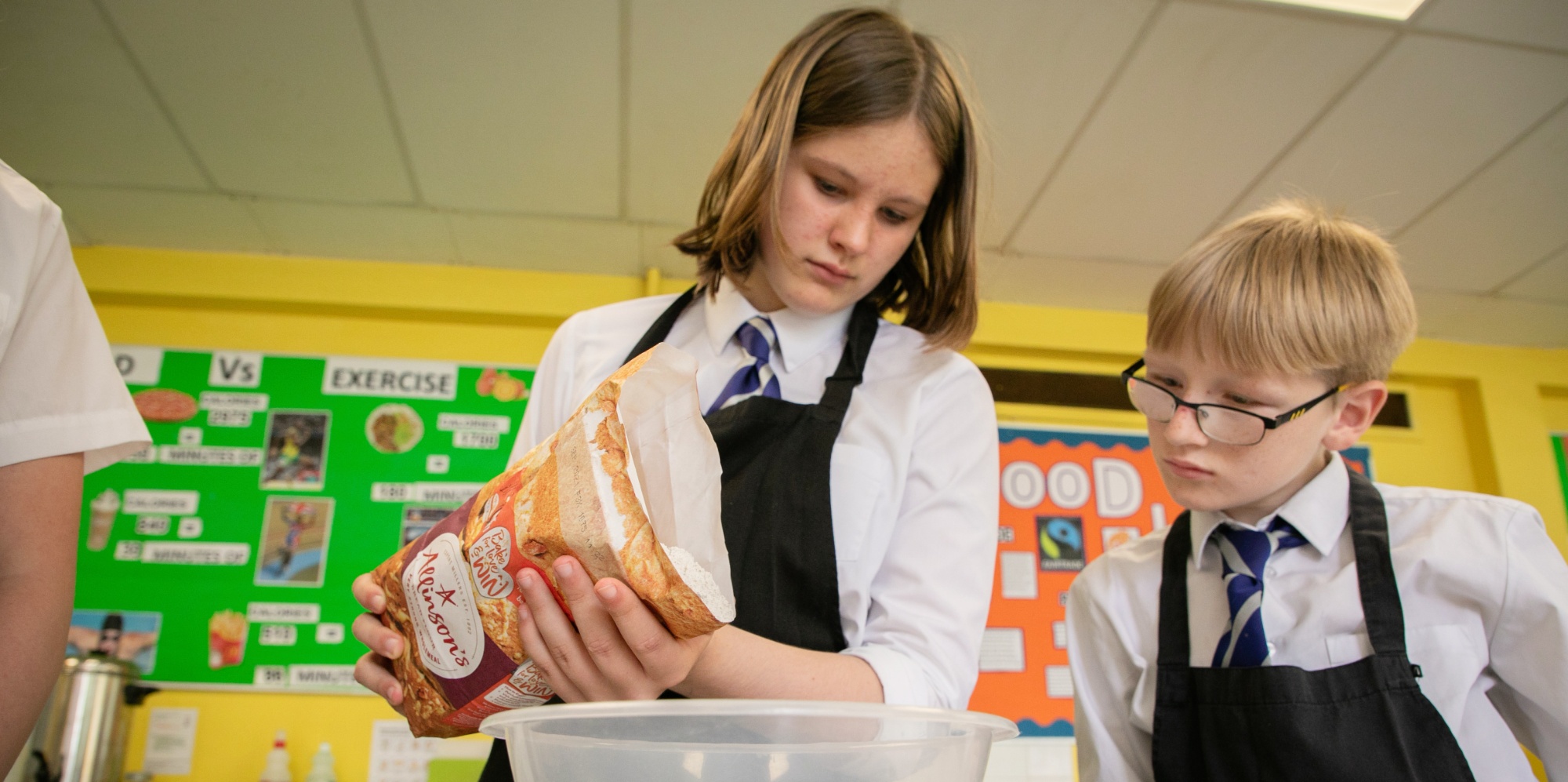Food Technology and Hospitality & Catering
Virgil: “The greatest wealth is health”
Meet the Food Technology and Hospitality & Catering Department
|
Name: |
Title: |
Email address |
|
Mrs J. Kelly |
Head of Department |
|
|
Miss C. Sutton |
Teacher of Food and Health & Social Care |
|
|
Mrs A. Knowles |
Assistant Headteacher, Teacher of PE and Food |
|
|
Miss R. Niebel |
Food Technician |
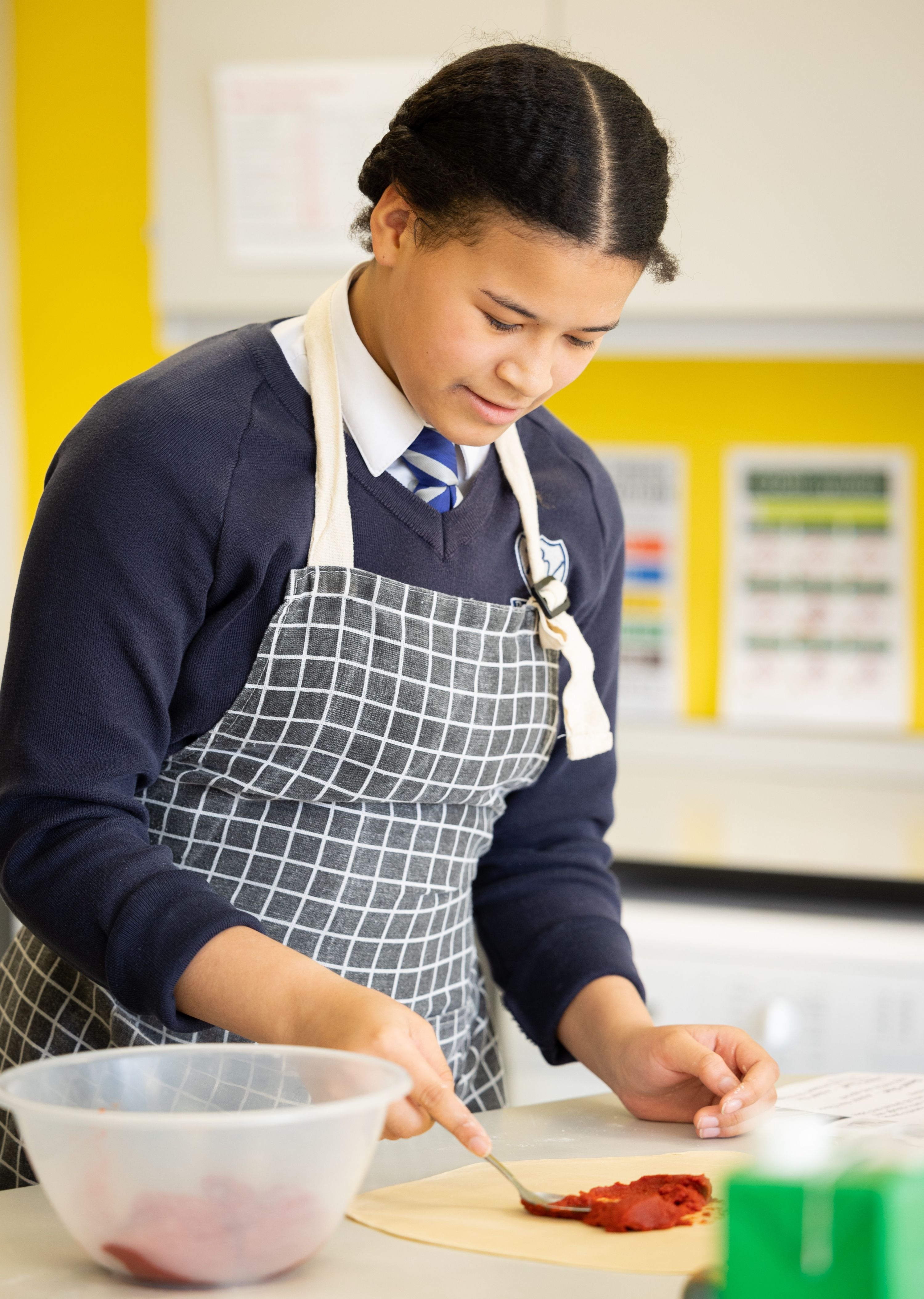 Intent
Intent
Design Technology / Food & Nutrition (KS3)
Design Technology is an inspiring, rigorous and practical subject that develops pupils’ creativity and imagination as they design and make products to solve current issues in a variety of contexts. Pupils develop a wide range of subject knowledge and forge links to other areas of their mathematics, science, computing and art curriculum. Our curriculum encourages pupils to take risks and learn to evaluate past and present ideas for a better future across the mediums of design technology. From gaining confidence and competence in Year 7, they should progress onto becoming more independent in Year 8 and then showing initiative in their approach to practical tasks in Year 9.
During Key Stage 3 Food & Nutrition, pupils design, make and evaluate a range of dishes. They will become familiar with current healthy eating guidelines and develop a technical knowledge and understanding of the properties of ingredients. In addition, pupils will explore the nutritional needs of a variety of target groups and will be able to make an informed choice of food within a range of contexts.
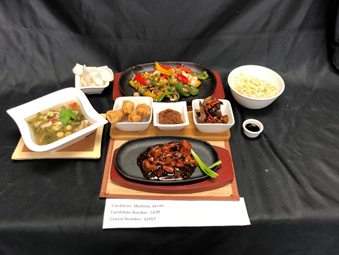 Hospitality and Catering WJEC Level (KS4)
Hospitality and Catering WJEC Level (KS4)
In Key Stage 4, pupils will draw upon their foundation knowledge acquired in KS3 Food to support their learning to develop a range of specialist skills and understanding of the Hospitality and Catering sector. Pupils will study how a Hospitality and Catering provider operates and the range of factors to consider to be a successful business. Pupils will learn at a greater depth the importance of personal/food safety & hygiene, principles of nutrition, diet and good health. Where food comes from (provenance) and how to prepare the following commodities (ingredients) meat, fish, eggs, dairy, fruit, vegetables, cereal grains & potatoes. The practical element of the subject enables pupils to develop food preparation and cooking skills as well as transferable skills of problem-solving, organisation and time management, planning and communication.
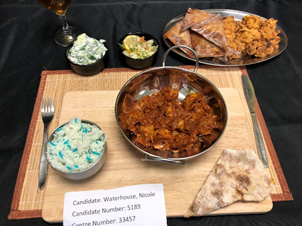
Pupils are assessed on their knowledge in Year 10 with an external written exam contributing to 40% of the course grade. Practical skills are assessed in Year 11, the internal cooking assessment contributing to 60% of the course grade.
Scheme of Learning/Courses/Curriculum Map
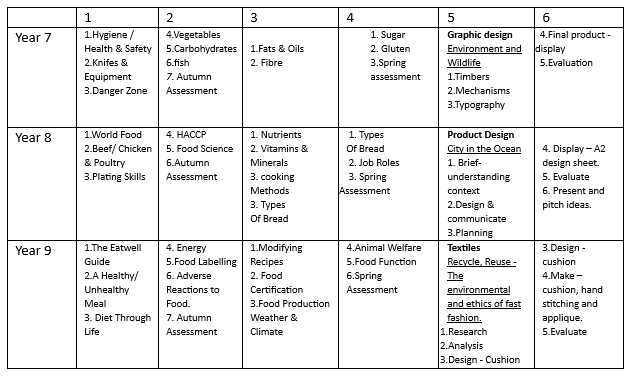

Exam Board Specification - Eduqas - WJEC
https://www.wjec.co.uk/umbraco/surface/blobstorage/download?nodeId=36667
Feedback Policy
The primary purpose of feedback is to move students on with their learning. Students receive feedback on their learning in a number of different ways, both formally and informally.
Formative assessment takes place every lesson in many forms including:
- Low stakes quizzing
- Live marking in lessons
- Questioning
- Peer and self-assessment (green pen)
- Examination style questions
Students are provided with detailed written feedback on longer pieces of written work and key pieces. Next steps marking is implemented, alongside other techniques to promote learning and progress. Students are expected to respond to their feedback and make improvements to their work by acting upon it immediately using purple pen.

